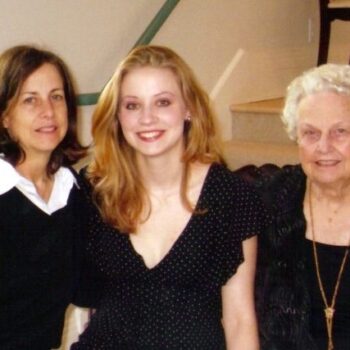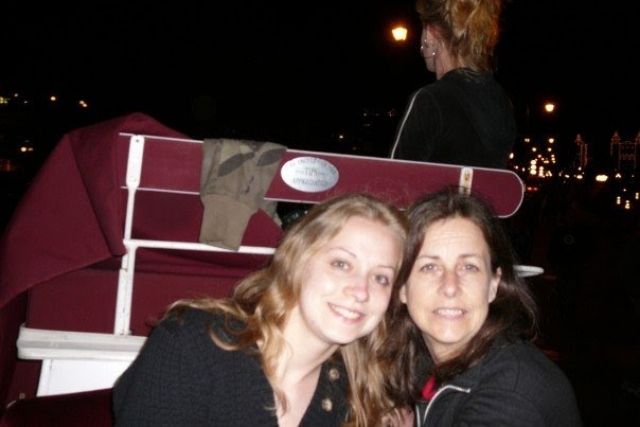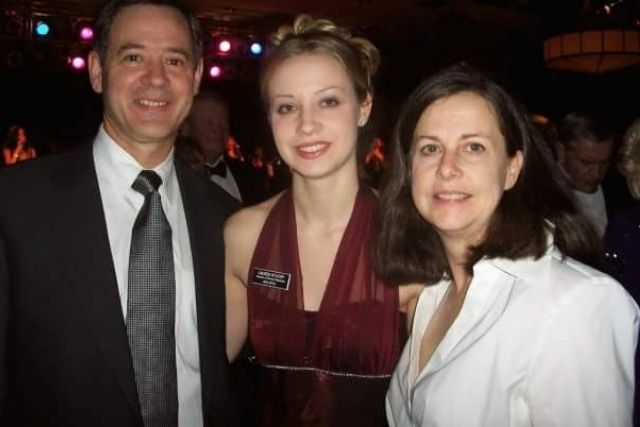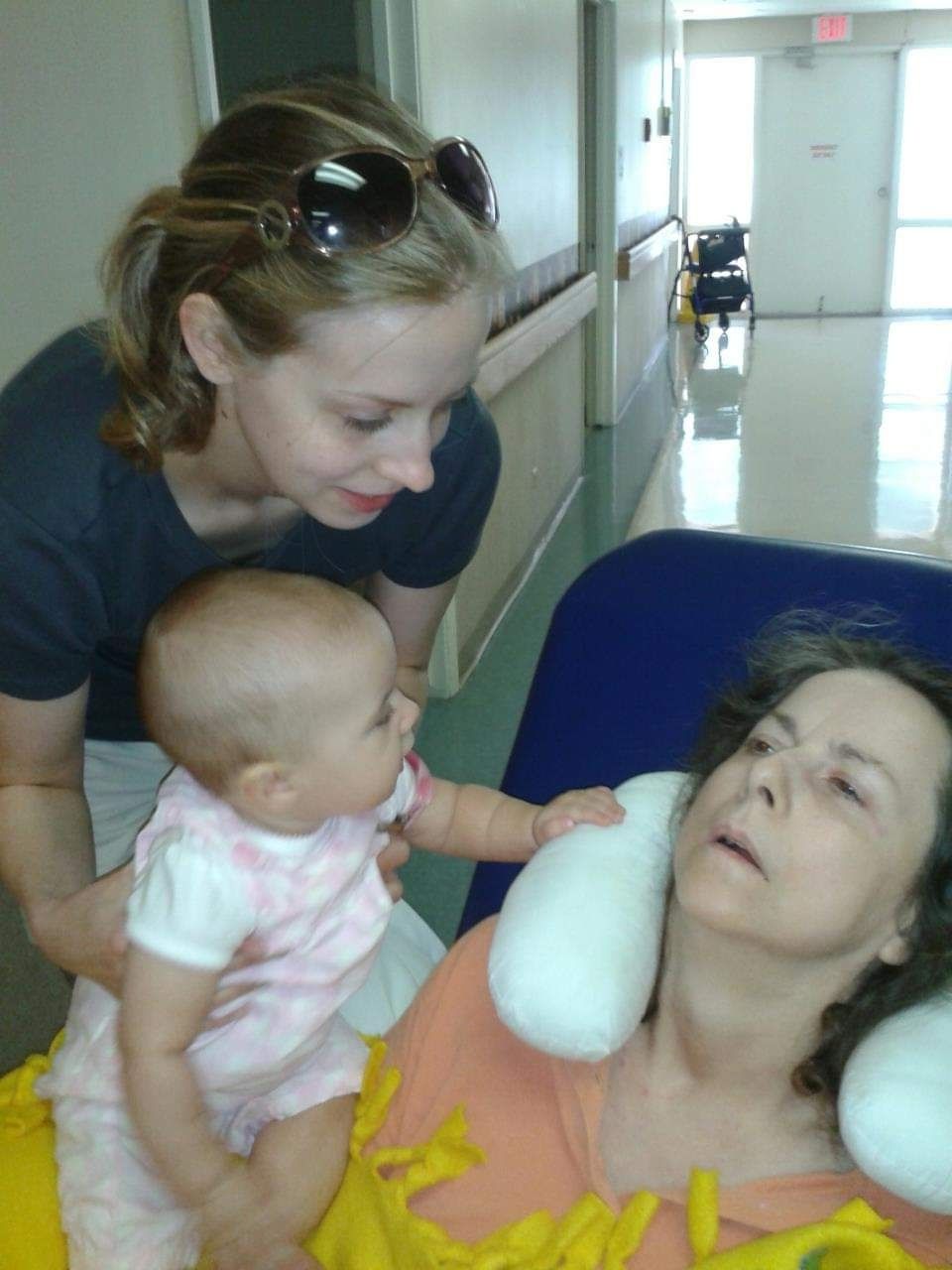What My Mother’s Alzheimer’s Taught Me About Motherhood

Caring for my mother through early onset Alzheimer’s disease taught me to be more patient. It helped me let go of unrealistic expectations for my kids.
June 20, 2025
Lauren Flake lost her mother, Dixie, to early onset Alzheimer’s disease in 2013. She is a mother to two middle-school aged girls and writes about grief and motherhood at LaurenFlake.com.
I’ll never forget the last time I brought my mother along to run an errand at Walmart. I can still picture her trying to pull her gray sweatpants off in the middle of the store. It makes me laugh now, almost two decades later my twenty-something, firstborn, perfectionist self was mortified.
My mother was diagnosed with early onset Alzheimer’s disease one week after I graduated from college in 2006. She was already in the middle stages of dementia. I was 22 years old; my mother was only 52. The next few months were, and still are, a bit of a blur. We both struggled to come to terms with her diagnosis. My mother’s moments of confusion were difficult, but the moments when she realized what was happening to her were the hardest.
When we discussed the neurologist’s diagnosis, my mother said they didn’t know why she “got so old all of a sudden.” I remember her crying when she realized she could no longer drive a car. My mother became emotional whenever she thought about her future with Alzheimer’s disease. I felt completely helpless in those moments.

About a year after her diagnosis, I stopped being able to take my mother shopping —just as I started planning my wedding. My mother, who had previously been my best friend in the entire world, did not get to help me choose my wedding dress, my flowers, my cake, or my ceremony and reception venues. I tried to include her in the wedding planning process, even taking her with me to meet a potential photographer, but taking her to public places became more and more of a challenge. She even tried to get out of my car in the middle of an intersection once because she forgot where she was.
My husband and I decided to move our wedding date up a few months because my mother was starting to have confusion about who I was, and I wanted her to know me as a bride on my wedding day.
About six months after my wedding, my father and I made the difficult decision to move my mother into memory care and then a secure wing at a nursing home, as she became a flight risk and could not be left home alone safely anymore. She quickly became incontinent, and the last diaper that I changed before I had my own babies was my mother’s. I remember being angry about the situation. I grieved our role reversal in that moment.

By the time I became a mother, any semblance of perfectionism I had left was barely hanging on. My first pregnancy ended in miscarriage as my mother continued to decline and experienced frequent falls and then frequent urinary tract infections in the nursing home. I enrolled her in hospice care while I was pregnant with my oldest daughter. Two years later, my mother died while I was pregnant with my youngest daughter.
My mother’s disease taught me that I could not control every situation, no matter how hard I tried. Her dementia forced me to take on each challenge one imperfect moment at a time, learning to laugh instead of crying or getting angry at every embarrassing mishap. My mother’s early onset Alzheimer’s disease prepared me for the beautiful mess that is motherhood.
Experiencing moments like my mother trying to pull down her pants in Walmart gave me the big picture perspective I needed a few years later to accept my children’s toddler antics. My mother’s dementia taught me to appreciate and prioritize opportunities for connection. It taught me to limit moments of correction. Caring for my mother through early onset Alzheimer’s disease taught me to be more patient. It helped me let go of unrealistic expectations for my kids.
Not being able to “fix” my mother’s illness and behavior as a family caregiver helped me learn to accept (and expect) imperfections in my children. It taught me to always try to meet my kids where they are instead of constantly trying to perfect their behavior. I often fall short, of course, but I’m learning to give myself grace. I’m trying to value progress over perfection in my parenting. I believe that being an Alzheimer’s caregiver made me a better mother.
